Interpretive, Interpersonal, and Presentational Modes of Communication
Spanish is an excellent language. As I continue to study more of the language, my love for it just grows. The amount of quizzes, unit assessments, lingo, foreign discussion, and other assignments made this level somewhat more challenging than the previous ones. The course consisted of 6 units, and they all had related themes such as identity, experiences, and cultures and customs. I learned so much in this class just as I did in the last class, this is my highest level reach so far and it was very interesting to encounter the complexities of learning Spanish. In all classes that I’ve taken so far, I noticed that the Hispanic community has a different tradition and perspective on a lot of things in comparison to the United States but I also understood that where I come from has a lot of culture and tradition that is very similar to that of the Latino/Hispanic culture.
Exploring Culture
Spanish is an excellent language and therefore has a spectacular culture. We explored both different and similar cultures in Latin America. I got learn more about Chicanos and how they rather not be associated with the term Latino/Hispanic. I got learn more about different traditional practices that these countries hold, also learn about stereotypes.
Over 30 collaborators gave an insight to their country. They talked about the stereotypes, their cultural identities and practices. I learned a lot from them. I already heard that Hispanic/Latino people were family oriented but reading about it and hearing my conversation partners talk about was nice to hear. It was also wonderful that they debunked some of the stereotypes that are made about their culture. One of my conversation partners who is from Cochabamba, Bolivia told me more about Bolivia and how Bolivians love to eat. It was really fascinating to speak to people and read about people from diverse backgrounds.

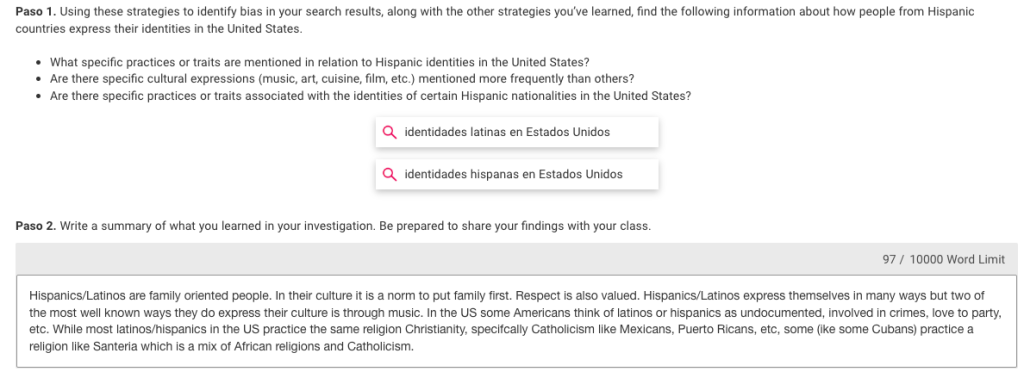
Engaging in Communities
I believe that it is imperative to engage in our communities, on all levels, be it locally or globally. Engaging in your community creates a sense of awareness in an individual. It helps us as people understand how to interact with different people. It creates openness, respect, and appreciation for others. Interacting with people from different communities widens your horizon.
Throughout this course, I engaged in my class community by posting on discussion boards and replying to posts made by my classmates. Everyone had their input to give, some different and some the same but despite that the atmosphere was respectful. It was very interesting to read others’ discussion board posts. It was an exciting experience.
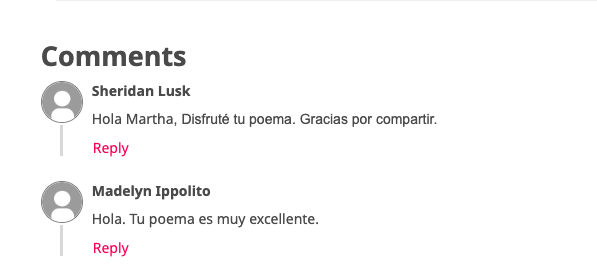
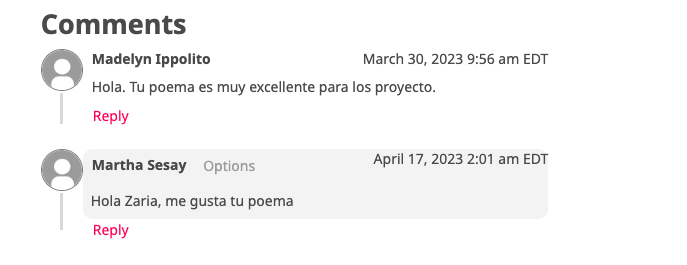
Interpersonal Communication
Interpersonal communication is the foundation of the entire course. When I participated in a TalkAbroad session, one of them was present. I spoke with my companion, a native Spanish speaker, and we talked about stereotypes and identities. Every module contained a discussion board where we were supposed to post in Spanish and respond to posts made by our classmates. This, in my opinion, was the most beneficial aspect because it allowed us to benefit from one another’s knowledge.
The audio of my first TalkAbroad meeting can be seen below. The interaction was quite pleasant, and my activity partner did her best to make herself understood by using various words and gestures.
With each activity, I saw the growth that I experienced. I learned new vocabulary and forms of expressions. It was definitely hard to understand what was being said straight away but recognizing familiar words helps in understanding the context of what is being asked or talked about. I did make a lot of mistakes which is why I understand that listening should be an area that I should improve on.
Presentational Speaking and Writing
On the list of activities that were undertaken, some of them were conducting research and giving a presentation with the results from the conducted search. In one of my research, I chose the country Mexico and wrote about a tradition in the country that is similar to La Mateadar and Asado called the Cacao Ceremony.

We also uploaded video projects required for each unit. Below is a video project that I posted reading a poem by the poet Elizabeth Acevedo.
Interpretive Listening and Reading
We did a lot of interpretative reading and listening exercises throughout all units. So far, I’ve tried to listen to music, watch TV shows, and try to understand Spanish speakers I come across. It is a little challenging because of how fast the speakers are since they are fluent but I manage to grasp some words here and there.
It was very interesting trying to figure out certain words due to the pronunciation differing from the spelling. From units 17-24, multiple audios were presented to complete activities. We also had two TalkAbroad sessions and a final oral with the professor. It was not easy to understand everything for the talk abroad sessions and final oral, but I tried to put bits and pieces together and look for context clues. Many texts and short stories were presented in this course in which we had to use our interpretive skills.
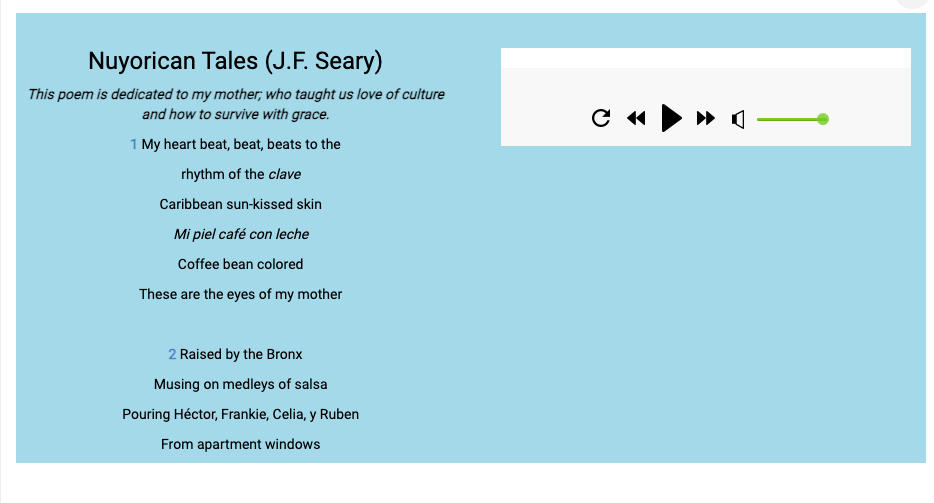
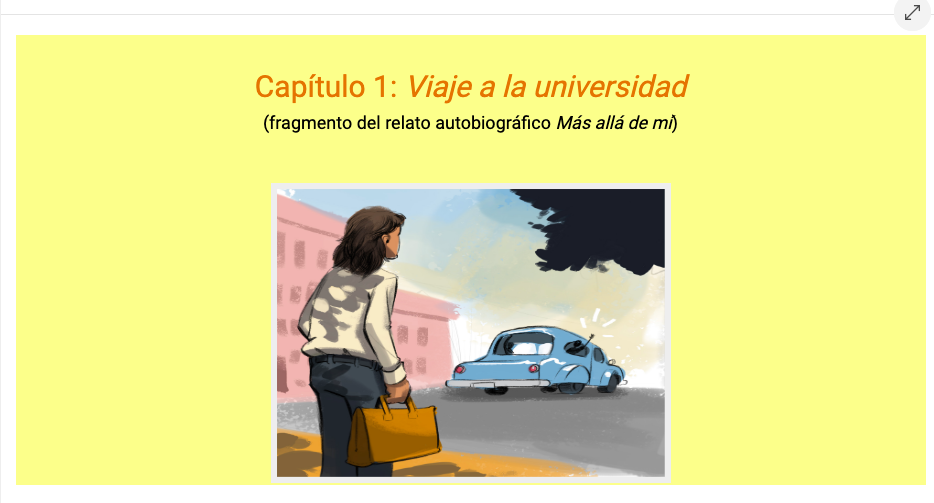
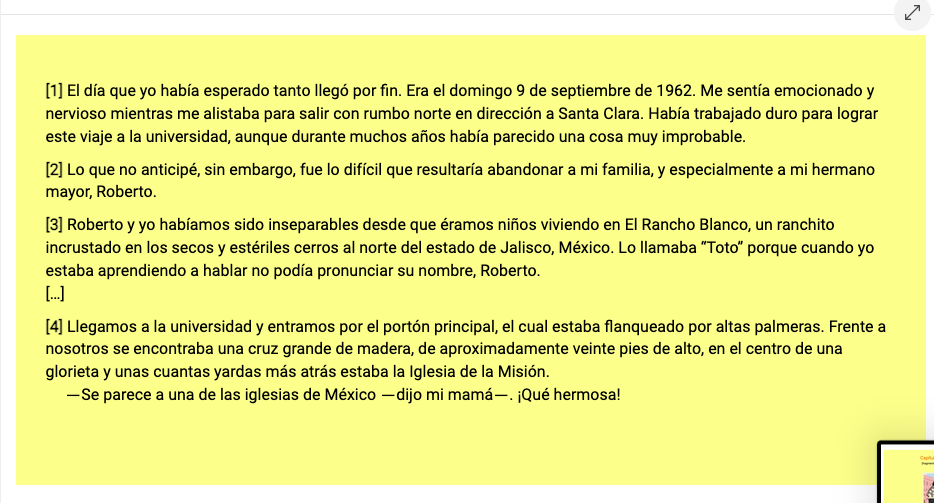
When you have finished adding content to this page, delete all the instructions except the link to the Modes of Communication.